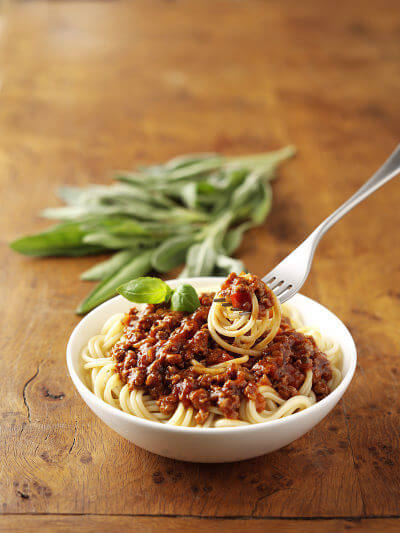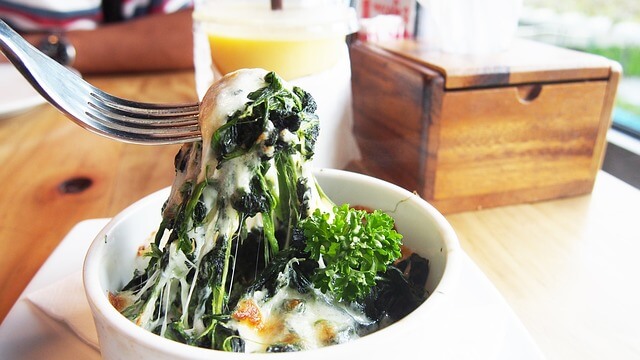Stopping Gout Together › Forums › Help My Gout! The Gout Forum › Is Quorn high in Purines?
Tagged: Eggs Dairy and Gout Forum, Forum for Gout Foodies, Gout Recipes Forum, Salmon and Gout Forum
🕖Latest Change: Oct 7, 2023 – ⎙Published: Apr 2, 2017.
Is Quorn Bad for Gout?
This topic discusses the meat substitute Quorn and its effect on the gout diet. Asking, "Is Quorn bad for gout?" And also discussing wider aspects of meatless protein and gout diet management. After that, I've added links to the latest Quorn information and the new gout forum.
-
AuthorPosts
-
-
April 2, 2017 at 6:11 pm #5444
Rebecca Nahid
Participant
Quorn and Gout
Anyone know of any studies that link eating corn to causing gout flares?
There’s a lot of the Quorn products in the UK. And they’re suitable for vegans. I know they’re very good high protein and low fat. But what worries me is I’ve heard anecdotal reports in the past of Quorn causing gout flare-ups.
I can’t see why that would be. Thank you

What’s your favorite Quorn recipe for gout?
-
April 2, 2017 at 6:11 pm #2946
 LanceParticipant
LanceParticipantMeatless Protein for Gout
Hey all! Working through a viable gout diet and running into protein deficiencies several days a week. I’m working a meatless 40-30-30 plan but am coming up light on protein. Does anyone have thoughts around protein powders? I’m conscientious of iron levels and have found some with low iron. Anything else to be concerned with? I know shakes kind of cheat the process but for those days where I’ve run out of other options…
goutpal.com/gout-diet/gout-treatment-diet/40-30-30-gout-diet/
Secondarily once I get my gouty diet on track I’d like to get back in the gym and increased protein will take on a greater role. You can check out my personal diary for more info.
Thanks for any insight!
-
April 2, 2017 at 7:54 pm #2948
nobody
ParticipantThere are common non-meat foods with more than 30% protein content such as soybeans and some hard cheeses, even before discounting stuff like fiber and water which doesn’t figure into this ratio. And once you do remove the other stuff, eggs for instance have a ratio like 2/54/44 (don’t quote me on this, I’m guesstimating) and partly-skimmed milk ought not to be very far from the target. So at least if you’re not vegan, you ought to be able to achieve the target… but at what cost and to what end?
I wouldn’t follow slavishly what a study did, especially if it required using “powders”. What’s their justification for the protein and fat levels?
Maybe I’m not thinking outside the box but my guess is that there aren’t enough healthy non-meat foods with the right ratios to allow for a reasonably varied 40/30/30 meatless diet inclusive of all the healthy foods low in protein and/or fat you’d want to eat.
On the other hand, if the general idea has merit, you ought to be able to get fairly close without bending backwards. Surely there’s nothing magical about 30 as opposed to, say, 26!You shouldn’t focus too much on the fact some people have achieved an UA reduction with that diet because:
-one’s UA level is not determined primarily by the carbs/protein/fat ratio of one’s diet and people have reduced their UA without eating so much protein and fat
-you have to compare the diet’s effect on UA with the effect of other diets as well as with your previous diet(s), not with whatever the study participants ate before that study
-gout symptoms during the process of UA reduction aren’t driven by UA levels alone and I bet there’s for instance a reason gout patients are told to watch the fat they eat (I’m not saying all fat is bad though) -
April 11, 2017 at 4:35 am #3092
 Keith TaylorParticipant
Keith TaylorParticipantI agree with nobody’s “You shouldn’t focus too much on the fact some people have achieved an UA reduction with that diet”.
But, to help a little with exactly what you’re looking for Lance, have a look at my High Protein Foods list. Initially, it’s ordered by the amount of protein in a 100g serving. In the first 100, I spotted a couple of cheeses, my beloved spinach, asparagus, broccoli, and eggs. Also, it begs the question if the macronutrient ratio should balance over a day or a week??? ❓
Anyway, I’ve included that 40-30-30 (Zone) diet page in my suggestion: Review Foundation Diet Pages. I’m suddenly taken by the idea that a great way to start gout dieting would be:
1. Arrange monthly uric acid tests (doc, lab, or home, according to preference).
2. Between tests, trial one of the foundation diets.
3. Repeat with second and third choices.
4. Compare uric acid test results, and repeat trials if necessary.
5. Choose preferred eating style then tweak for better uric acid control, as required.It would probably help to track weight. Also, exercise if that is significant. Personally, I’d include gout symptoms. But, I’m a data geek!
Also, personally, I’m not a fan of protein supplements. Unless you call smothering everything with spinach a form of supplementation! So, I’d definitely investigate safety research before starting any supplement.

Who wants Cheesy Baked Spinach for Gout Protein?
Protein is great for gout. It encourages uric acid excretion. But, where do you get protein on a vegetarian diet? Get your veggie proteins for gout, now.
-
August 28, 2017 at 4:22 pm #5452
nobody
ParticipantApparently some Quorn products are now vegan. But they are not plants products and so I wouldn’t recommend them to anyone with gout or even asymptomatic hyperuricemia. The vegan products are probably even worse than the Quorn products made with eggs.
My assumption would be that mycocultures contain nowhere as many purines as yeast but still quite a bit more than legumes. At least one study has compared this stuff to soy products but of course the various ways industrial products are processed could yield various amonuts of purines in the final product. Maybe ask the manufacturer…Plants are safer. What’s wrong with lentils?
-
August 29, 2017 at 8:57 am #5484
Rebecca Nahid
Participanthttp://www.ukgoutsociety.org/docs/diet_factsheet.pdf
^ this plus lots of other stuff online, lentils keep coming up as something that should be consumed in moderation this is why I am confused, as why would it be bad to eat Quorn also in moderation? I do eat processed soya in moderation for example Linda Mcartney sausages, but not every day and I balance them out with plenty of vegetables. this is why I get so confused and frustrated lol
-
August 29, 2017 at 9:35 am #5485
nobody
ParticipantThe recommendations you linked to aren’t for vegans. They recommend dairy over legumes. And indeed I eat a lot more cheese than lentils.
But since dairy isn’t an option for you, you have to settle for the next best thing. And in order to do that, you need more specific information than what these recommendations provide because as it is, the foods vegans should eat for protein are basically all in the “eat in moderation” category.Based on the limited information I have about meat substitutes, the ones based on plants contain a good bit less purines. Yes, Quorn products contain less purines than the really dangerous stuff like yeast or anchovies. But that doesn’t mean you should disregard the difference between Quorn and plant-based products.
In my opinion, the only rule you have to follow in order to be safe purine-wise is to stick to plants. There’s probably no need to make it more complicated even though there are a few dangerous things unreasonable people could in principle do with plants. At first I didn’t think you’d have to follow any rules because I figured that as a vegan you’d only want to eat plants anyway. Goes to show how little I know… -
August 29, 2017 at 6:15 pm #5507
Rebecca Nahid
ParticipantThere is nothing wrong per se in just wanting a change sometimes I like lentils chickpeas beans etc but I do get bored and I’m not one of these perfect vegans that just lives off the land. occasionally I do fancy a processed vegan burger or ice cream I don’t drink don’t smoke and to be honest I need a couple of vices now and then that’s why I asked about Colin I saw an advert yesterday for the corn nuggets and just thought you know what I really fancy that sometimes I just don’t feel like lentils
-
August 29, 2017 at 6:52 pm #5513
nobody
ParticipantOn a “now and then” basis, Quorn products are probably harmless (barring rare allergies and whatnot).
Purines add up when you eat a type of food frequently. If you eat something often enough that the fat content, protein mix and so forth are an issue, purines may be an issue as well. If not, enjoy… -
August 30, 2017 at 9:42 am #5525
Rebecca Nahid
ParticipantThank you yes, I didn’t mean it would be something regularly eaten but when I see adverts for new Quorn vegan products I don’t want to make myself miserable but telling myself “I can’t eat that” do you know what I mean? I am considering looking at the Slimming World plan to get some excess weight off it is quite good for vegans and I think will encourage me to eat a wider range of plant proteins.
-
March 8, 2019 at 11:48 am #8844
Jason Ayers
ParticipantQuorn & Gout
Hi.
Trying to see if anyone knows of any Quorn related research? I emailed Quorn directly and they say:
“Unfortunately we do not have any information on the purine levels in Quorn products, however high levels tend to be found in meat and meat products therefore if there are any in Quorn products we would expect these to be very low.”
https://www.arthritis.org sent me the following saying Quorn has moderate levels of purines:
Mushrooms and fungal proteins such as mycoprotein (Quorn); as well as a number of vegetables such as asparagus, cauliflower, spinach, lentils, and soya beans are also rich in purines and should be eaten in moderation. There is medical evidence, however, that vegetarian diets high in purines are less likely to lead to gout than diets containing meat or shellfish.
-
March 8, 2019 at 1:24 pm #8845
nobody
ParticipantIt was predictable that they’d bullshit you. There has been a little research on this and, equally predictably, the outcome was that you’d eat fewer of the problematic purines by going for soy instead of shrooms.
I’m sorry to say “moderate levels of purines”, “high in purines” and so forth are effectively bullshit as well.Bottom line: eating the body of any organism tends to raise your uric acid. Best get most of your nutrition from stuff based on things like seeds and milk (that would include stuff like tubers, fruits and eggs for instance).
But the bodies of most land plants have very large cells so they don’t have many of the problematic purines. And relatively to these purines, they contain a lot of minerals, vitamins and the like so by eating the parts of land plants that are unlike seeds, you might get health benefits that outweigh the impact on uric acid (indeed, the beneficial effects could actually lower some people’s uric acid in spite of the purines).Another problem with stuff like Quorn is that its nutritional value is poorly understood compared to stuff like soy. If you care to learn how to design a fact-baed vegan diet, you’ll have an easier time relying on a mix of well-known plant products than wannabe meat substitues.
-
April 5, 2019 at 8:26 am #8898
 Keith TaylorParticipant
Keith TaylorParticipantFirstly Jason ( @jason-ayers ), I’ve merged your topic about Quorn here as the subject doesn’t generate enough interest to warrant 2 topics. However, if you want to ask about personal help planning a low-purine diet, then start another topic. But please see my comments below.
Secondly, I agree with Nobody’s reply to Jason’s post. I believe Jason should acknowledge it.
Thirdly, I want to share some science about Quorn (mycoproteins) and Purines.
Quorn and Purines
As far as I can see, the only study that directly addresses this issue is:
Havlik, Jaroslav, Vladimir Plachy, Javier Fernandez, and Vojtech Rada. “Dietary purines in vegetarian meat analogues.” Journal of the Science of Food and Agriculture 90, no. 14 (2010): 2352-2357.
Which concludes:Protein‐rich vegetable‐based meat substitutes might be generally accepted as meat alternatives for individuals on special diets. The type of protein used to manufacture these products determines the total content of purines, which is relatively higher in the case of mycoprotein or soybean protein. While appearing lower in wheat protein and egg white‐based products. These are therefore more suitable for dietary considerations in a low‐purine diet for hyperuricaemic subjects.
However, there is a 2016 study which references that 2010 study:
Lockyer, S., and S. Stanner. “Diet and gout–what is the role of purines?.” Nutrition Bulletin 41, no. 2 (2016): 155-166.That refers to different types of purine bases discussed in the 2010 study (more later). Then it summarizes some earlier relevant work:
Finally, 100 subjects consumed 20 g dry weight mycoprotein in cookies, an amount comparable to an average retail portion of Quorn<sup>TM</sup> products, or control cookies for 30 days, separated by a one-week washout period (Udall et al. 1984). There was no significant change in Serum Uric Acid (SUA). A smaller study reported in the same paper (n = 13) also stated that SUA remained within the normal range after consumption of mycoprotein for 16 days.
Now, the more I study purines, the more I realize that they are only an indicator of what might happen to uric acid levels in your body. Because different types of purines have different effects on uric acid. Also, people process purines in food differently. So foods that raise or lower uric acid in one person might have no effect or the opposite effect in another person.
More importantly, most gout sufferers do not manage their diet in a way that allows them to monitor the effect on uric acid. In fact, of all the thousands of gout sufferers I have corresponded with over the years, only a handful have ever tried to correlate diet changes with uric acid changes. Fundamentally, if you are not prepared to monitor those changes, then you are much safer if you discuss allopurinol or it’s alternatives with your doctor. Because that makes all foods low purine. Allowing you to focus on eating healthily.
Which brings me to my final point on Quorn and purines. In my opinion, Quorn is not a healthy source of protein. Instead, I recommend you plan your gout diet around healthy whole foods. With my mantra being EFSEP:
Eat Food (avoiding processed food-like substances).
Sufficient (avoiding being overweight).
Especially Plants (avoiding excessive animal consumption which is linked to gout and many other diseases).
-
-
-
AuthorPosts

Is Quorn Bad for Your Gout?
In this discussion, we see some gout sufferers experiences about Quorn and other meatless proteins. But gout diet is complicated. And your concerns about food change as your gout progresses. So I recommend dealing with your concerns about Quorn and gout according to your gout progression phase.
The gout phases during which concerns about Quorn are relevant are:
So study the dietary aspects of your current phase. Or use GoutPal's Gout Search Engine to find more Quorn articles. Also, you can join the gout forum to discuss my Quorn and Uric Acid research.
Leave Is Quorn Bad for Gout to browse Adjust Uric Acid Cure pages.